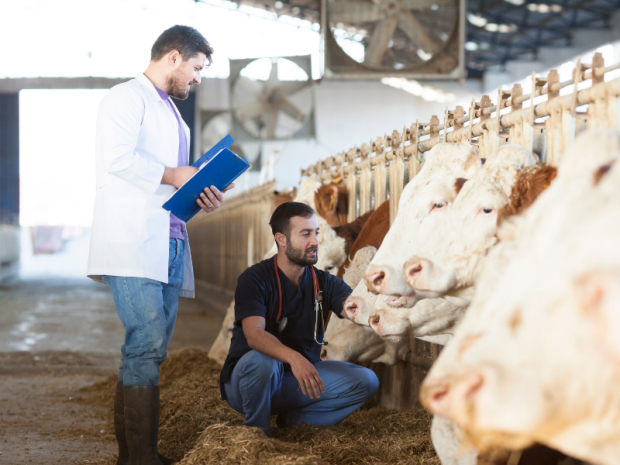
Exporting Products of Animal Origin to Northern Ireland and the European Union
Written by Defra Press Office

Overall, the system is working well with hundreds of Export Health Certificates being successfully completed each day. We are seeing increased volumes of lorries making successful journeys under the new arrangements and greater documentation compliance as businesses gradually become familiar with the new procedures.
The latest data shows that there are around 5,000 lorries moving between GB and the EU, and over 1,000 HGVs moving between GB and NI each day.
Both the UK and French EHC certification systems are fully operational and the Government is in close contact with exporters to ensure that they have the correct documentation in place.
The Government has worked closely with industry to ensure that exporters are well prepared to meet the new export requirements and continues to support exporters through virtual workshops and online webinars which provide step-by-step guidance. Businesses can also contact Defra for further advice and support on EHCs by visiting https://www.gov.uk/guidance/contact-defra or by calling 0300 020 0301.
What is an Export Health Certificate?
Export Health Certificates (EHC) are official documents confirming that goods due for export meet the necessary health requirements to enter the European Union.
Exporters will need to have an EHC to export live animals and products of animal origin. Examples of products that need an EHC include pork, beef and cheese as well as mixed products including lasagne and pork pies. For more detailed information on which products need an EHC visit ‘Get an Export Health Certificate’ on gov.uk.
How do I get an EHC?
To get an EHC exporters need to register for the digital service, EHC Online. Exporters will need to choose the appropriate EHC for the goods that they want to export, carefully read the notes for guidance that explain the specific requirements that need to be met and then apply for their EHC providing the necessary information regarding the products due for export.
How do I get my EHC certified?
It is the responsibility of the exporting business to ensure they have a certified EHC accompanying their consignment to the EU. In order to be certified, goods need to be inspected and verified by an authorised certifying officer.
Certifying officers include Official Veterinarians (OV) who are qualified vets who hold additional qualifications to inspect and certify EHCs and certified by Food Competent Certifying Officers (FCCOs) who are generally environmental health officers, based in Local Authorities.
What do I do once my EHC has been certified?
Exporters need to send an electronic copy of the certified EHC to their EU importer to ensure that they can submit pre-notification on the TRACES NT system before their goods arrive at an EU Border Control Post.
The original signed and stamped EHC must travel with your goods as this will be checked as your goods arrive into the EU. Without a valid and certified EHC, consignments could be rejected or delayed at the EU Border Control Post so it is important that this process is fully completed.
Support for industry
Defra has worked closely with the export sector to ensure they are aware of changes to exporting requirements. This has included virtual workshops and webinars on the process for Export Health Certificates and regular guidance to stakeholder organisations and articles in trade media covering the actions industry needed to take.
Traders can view step by step guidance by watching the following webinars:
- Export Health Certificate (EHC) and the online service
- Products of Animal Origin
- Composite food products
Traders can also select the most appropriate Helpline for the commodity you are exporting to the EU or NI at https://www.gov.uk/guidance/contact-defra
Defra also launched the Movement Assistance Scheme so traders moving agri-food goods to NI will not need to pay for certification costs. Those costs will be reimbursed by government directly to those certifying the products.
In addition, Defra has set up an Authorised Traders Scheme which has provided a three-month grace period from official certification requirements for supermarkets and their trusted suppliers moving products of animal origin, composite products and food and feed of non-animal origin and plants and plant products to NI.
Official Veterinarians
In Great Britain, Official Veterinarians (OVs) operate in the private sector; however, the government has taken a number of steps to support the market in meeting demand. As part of these efforts the government has provided £800,000 of funding for free training for vets and local authority officials to ensure that there are enough OVs to meet exporter demand.
The number of OVs qualified to sign EHCs for animal products has increased from around 600 in February 2019 to approximately 1,500 today and this number continues to grow.
The government has also created the role of Certification Support Officers (CSOs) to reduce the certification burden on OVs and Local Authority Certifying Officers, and subsidising the training required. More than 350 CSOs have been authorised in Great Britain to date.
In addition to this the government has offered over £1m in grant funding to English coastal authorities expected to have the highest demand for EHC services.
A UK Government spokesperson said:
Over the past year we have worked closely with industry, local authorities and the veterinary industry to launch EHC Online, so that trade continues to flow smoothly.
We have supported industry by doubling the number of official certifiers to meet demand to ensure that the food industry can take advantage of the opportunities that the UK’s new chapter brings.
Follow Defra on Twitter, and sign up for email alerts here.
Continue reading on Defra Website...





